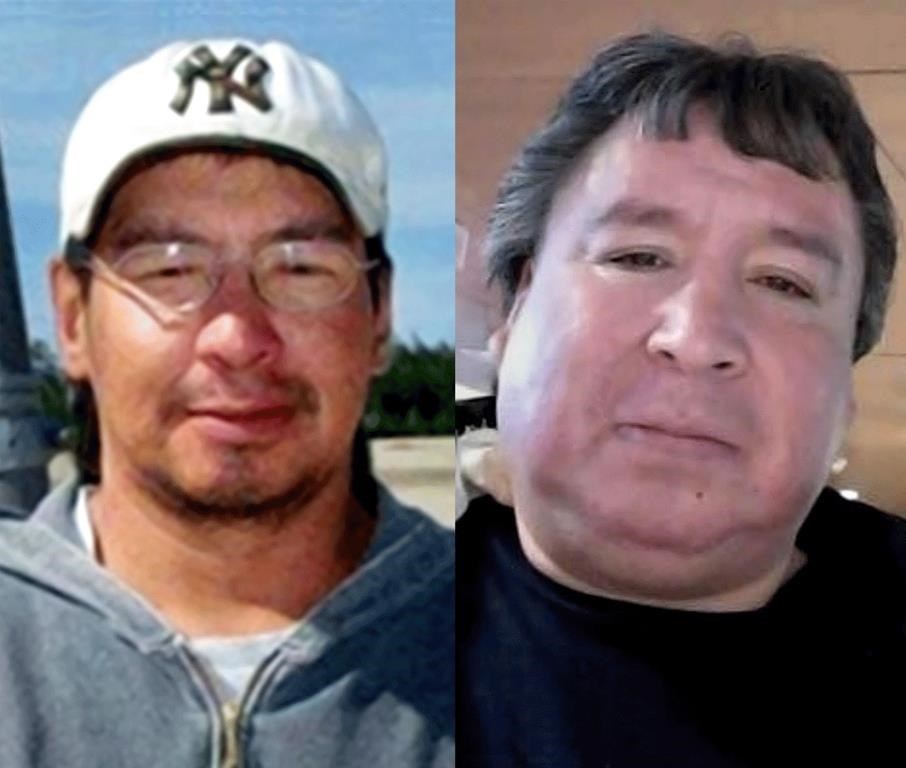The likely preventable death of an Indigenous man in Thunder Bay police custody should be considered a homicide, a lawyer for his family argued as a coroner's inquest heard closing submissions Thursday.
Asha James stressed that while inquest jurors cannot assign blame or find liability, the family submits that Donald Mamakwa's 2014 death in a cell at police headquarters was not an accident.
Paramedics and police who interacted with Mamakwa had opportunities to help him that were not taken, and their conduct contributed significantly to his death, James argued. An expert told the inquest Mamakwa had a 97 per cent chance of survival if he had been treated at a hospital.
"Their failure to take Don to the hospital caused his death," James said. "It is the family’s position that accident is not an appropriate manner of death."
Jurors will make a determination on Mamakwa's manner of death.
The inquest is analyzing both Mamakwa's case and the 2017 death of his uncle, Roland McKay. Both Indigenous men died in police cells after they were arrested on suspicion of public intoxication in Thunder Bay.
Jurors heard that the two men died of medical conditions and had chances of survival if they had been taken to hospital.
The inquest heard that lawyers for all the parties could not agree on the manner of Mamakwa's death, though the cause was agreed upon as factors related to diabetes, chronic alcoholism and sepsis.
Kevin Matthews, a lawyer for Thunder Bay police officers, argued Mamakwa died because he lacked appropriate medical attention for conditions that existed before first responders interacted with him.
While opportunities to send Mamakwa to the hospital were missed, those weren't limited to the emergency responders who met him that day, Matthews said. He noted that Mamakwa did not have a family doctor and had recently been treated for serious diabetes complications.
"The system let Don down," Matthews told jurors. "I respectfully urge you to find that Don Mamakwa passed away from natural causes."
Meanwhile, a lawyer for the chief of police argued that Mamakwa’s death should be classified as an accident because no one person's decision can be pinpointed as having caused it.
James, the lawyer for Mamakwa's family, highlighted testimony from paramedics that they did not physically assess Mamakwa or take him to hospital despite him asking to go and describing trouble breathing. She also noted testimony from an arresting police officer that he found Lysol – a dangerous, non-palatable alcohol – on Mamakwa but did not make a record of that.
She further highlighted that the person supervising him in jail only checked on him twice during the night, the second time being three hours after it is believed he died.
In the case of McKay, James said the family submitted his death was of natural causes brought on by his hypertensive heart disease, but said paramedics and police also made assumptions about him and opportunities for treatment were missed.
She highlighted testimony that paramedics did not share the results of McKay's vital sign assessments and the police officer supervising him at the jail assumed he had sleep apnea.
A lawyer for the coroner also made note of missed opportunities to help both men during her closing submissions, noting that Mamakwa tried to share his medical needs and ask for help before his death and McKay was not provided with enough information about his condition.
"The harsh truth is that Don was advocating for himself and Roland needed someone to advocate for him," Kate Forget said.
Forget did not make arguments about the manner of Mamakwa's death, but encouraged the jury to consider both his natural disease and the cumulative actions of those who interacted with him.
"If you feel like it’s both things, you shouldn’t feel like you are on the wrong track," she said.
In her arguments, Forget discussed the need to use principles of truth and reconciliation to guide thinking about the cases. She said jurors should consider why Mamakwa was ignored when he advocated his needs and asked for help, and what role racism or other stereotypes may have played.
The inquest also heard proposed recommendations agreed upon by lawyers for all parties, including better training for officers and paramedics and a sobering centre in Thunder Bay.
Also on the list of agreed-upon recommendations was a call for more cultural sensitivity education for first responders and that the police service's board hire a deputy chief of Indigenous relations and regularly review its policies.
Forget said the jury must confront difficult truths while considering recommendations to prevent similar tragedies.
She said they should keep the testimony of the men's loved ones in mind, saying "maybe the most painful truth" is the question of whether the outcome would have been different if those who interacted with them had known what they meant to their families.
"We can all wonder whether we would have met or whether we would even be sitting here together today."
This report by The Canadian Press was first published Nov. 3, 2022.
Holly McKenzie-Sutter, The Canadian Press


